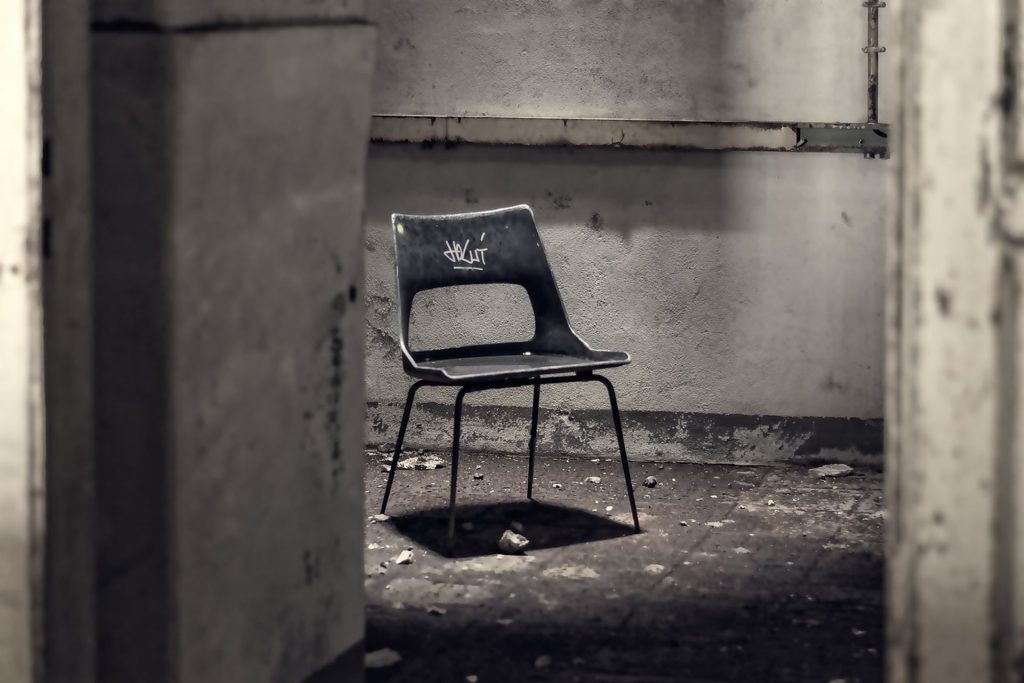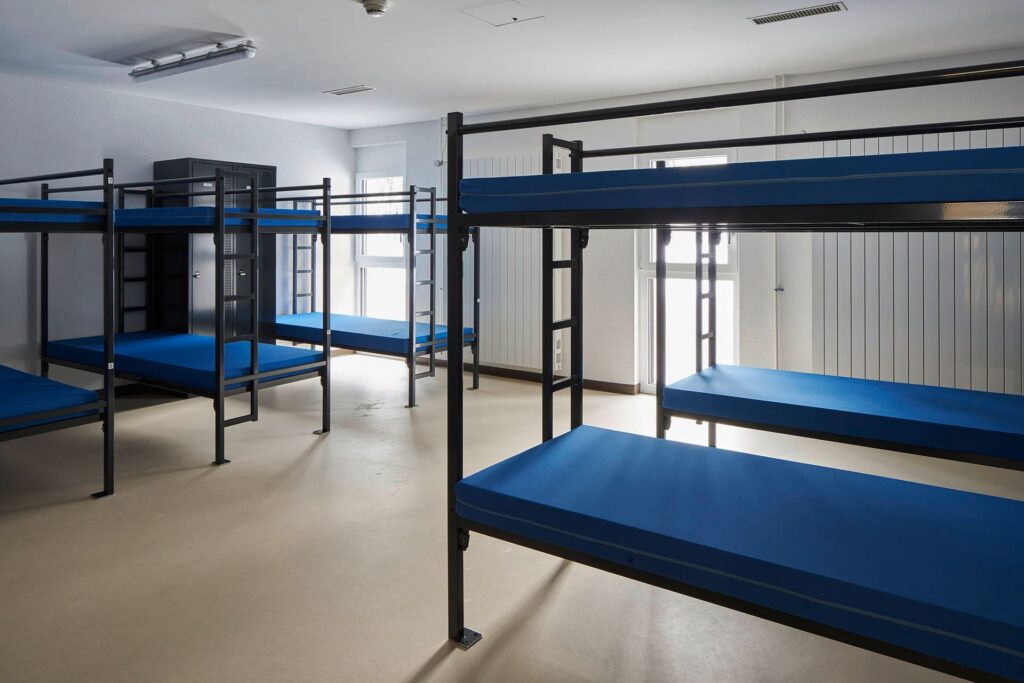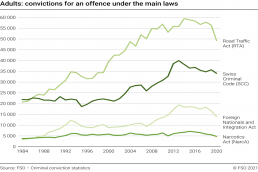In Switzerland, 11% less criminal convictions in 2020
The Federal Statistical Office has observed a decrease in the number of violations of the laws on foreigners and traffic as well as in sentences of more than 2 years
Who is the recipient of a criminal sanction in Switzerland? And why? This finding emerges from the computation of criminal convictions carried out by the Federal Statistical Office (FSO).
In 2020, around 95,000 convictions of adults were recorded in the criminal record, 11% fewer than in 2019.
The biggest decline was in convictions for violations of the Foreign Nationals and Immigration Act (-17 per cent). In particular, far fewer prison sentences of more than two years were imposed (-27 per cent). In 1841 sentences, deportation was ordered (-12%).
The results of the 2020 criminal conviction statistics suggest that the COVID-19 pandemic had a major influence on the conviction figures.
However, these statistics do not yet provide a definitive picture. Only when all 2020 offences have been processed will it be possible, for example, to assess whether fewer offences have actually been committed or whether this is merely a delay in the processing of criminal proceedings. Until then, however, it will take at least one or two more years.
European Committee for the Prevention of Torture in operation

Sharp decline in criminal sanctions in all areas
There were fewer convictions for offences under both the Criminal Code (CP) and the main subsidiary laws.
In particular, the number of convictions for offences under the Law on Foreigners and their Integration (LEtrI: -17%) and the Law on Drugs (LStup: -14%) fell sharply.
Convictions for offences under the Road Traffic Act also fell sharply (-13 per cent).
In particular, convictions for driving while unfit (mainly under the influence of alcohol or drugs) fell by 15 per cent, which can be explained in part by the closure of bars and restaurants.
The smallest decrease was in convictions under the Swiss Penal Code (-5%).
Swiss migrant information system to be rebuilt

Biggest decrease for foreigners without a permit
If we look at the situation from the point of view of the convicted persons, we can see that the decline in convictions of foreigners without a B or C permit (CP: -12%; LSL: -21%; LStup: -21%) is much greater than that of Swiss nationals or foreigners with a B or C permit (CP: -3%; LSL: -9%; LStup: -8%).
As far as convictions for serious traffic offences (often speeding) are concerned, a somewhat unexpected picture emerges at first glance, in that there has even been an increase in the number of convictions (+3 per cent) of Swiss nationals and foreign nationals with a B or C permit, while foreign nationals without a B or C permit have received 25 per cent fewer convictions.
Here, too, the measures taken to combat the COVID-19 pandemic provide a possible explanation: on the one hand, the closing of borders led to fewer crossings through Swiss territory, while on the other, it can be assumed that people living in Switzerland avoided public transport more often, preferring to travel by car.
Violence against the Migration Secretariat and Asylum Centres

Sharp decrease in prison sentences of more than 24 months
Due to the lower number of convictions, fewer sentences were also handed down. However, the breakdown between the various types of penalty remained largely unchanged from the previous year, since the main penalty, imposed in 70 per cent of all convictions, continued to be suspended fines in 2020.
What is striking, however, is the particularly large drop in prison sentences of more than two years, from 865 in 2019 to 630 in 2020 (-27 per cent).
Here, in subsequent years it will be important to observe whether the reduction is due more to the fact that sentences in the context of criminal proceedings for more serious offences were handed down and entered in the criminal record late due to the pandemic, or whether there were indeed fewer serious offences.
The UNHRC will adopt two Swiss initiatives

Expulsions from Switzerland to foreign countries are also declining
In 2020, 1841 expulsions were pronounced. Here too, the numbers are down compared to 2019 (-12 percent).
As in previous years, these were mainly compulsory expulsions (90 percent) pronounced for convictions of foreign nationals without a B or C permit (81 percent).
In 61 per cent of all convictions for an offence under Article 66a of the Criminal Code, an expulsion was imposed (rate of compulsory expulsion).
This proportion strongly depends on the sentence handed down at the same time.
For pecuniary sentences the application rate is 5%, for custodial sentences of less than six months 45% and for custodial sentences of six months or more 86%.
The Special Asylum Centre in Les Verrières is operational again







